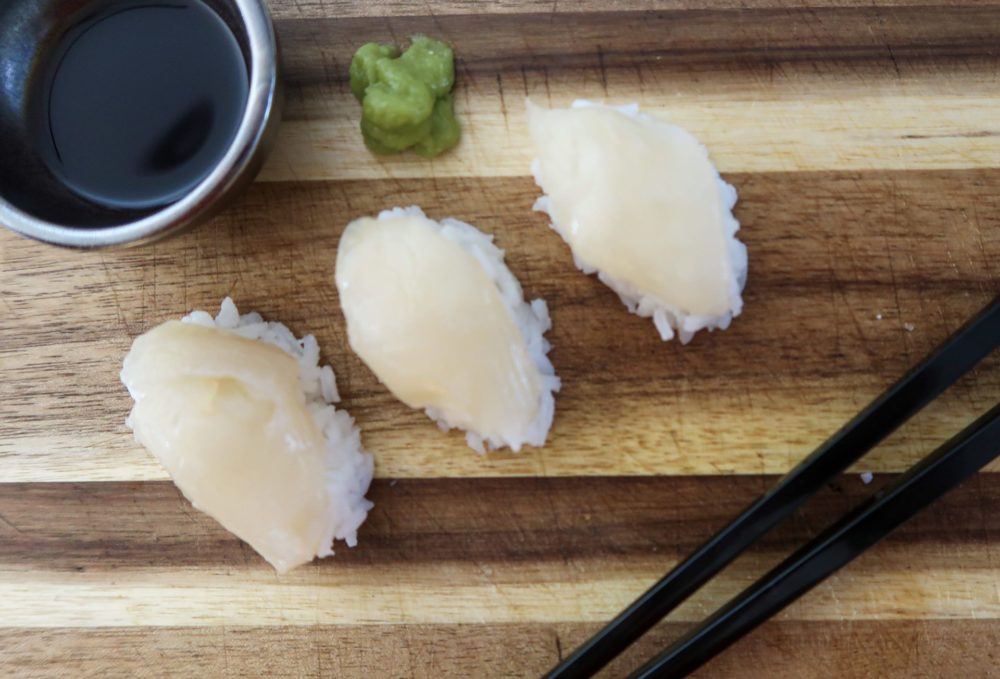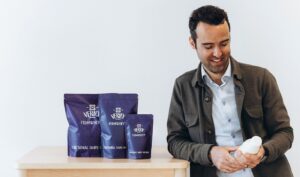Aqua Cultured Foods, a US company that makes seafood analogs via a fermentation process, has raised $2.1 million in pre-seed funding.
Investors in the round included Supply Change Capital, Big Idea Ventures, Aera VC, Sustainable Food Ventures, Hanfield Venture Partners, Lifely VC, Conscience VC, Kingfisher Capital, Hyde Park Angels, and Swiss Pampa CEO Gonzalo Ramirez Martiarena.
Founded in 2020, Aqua Cultured Foods is making animal-free seafood analogs using a microbial fermentation process and its own proprietary strain of fungi. Anne Palermo, CEO of the Chicago-based startup, tells AFN that the resulting protein is “whole-grown,” meaning it doesn’t require extra processing or genetic modifications. Because of this, the product’s nutritional profile is substantially more robust than many plant-based seafood options, she claims.
Palermo says it’s also “inherently flavorless,” giving it enough versatility for use in many different kinds of alt-seafood products. Tuna, whitefish, calamari, shrimp, and scallops are all among the whole-muscle cuts of fish Aqua Cultured Foods has produced so far.
According to Palermo, all of these products are derived from the same basic protein source, which is fine-tuned in the later stages of the growth process to create the desired texture and flavor. For example, adding more fiber gives the product a chewier texture, making it an apt replacement for calamari. Toning the fiber content down results in a fish with a more delicate texture appropriate for something like sashimi.
This versatility will play a big role in helping Aqua Cultured Foods get to market faster, she says.
“Our whole end game is to try and bring healthy, sustainable proteins to the market to everyone. So we want them to be [available] at a price point that’s accessible and a flavor that’s accessible.”
The company is targeting 2022 as the commercial release date for several products. Initially, these releases will be in the form of limited-time offerings at various foodservice locations. Retail is also part of the company’s eventual strategy. Without specifying names, Palermo says the company is getting a lot of early sales interest and strategic partnerships.
“[We have] lot of opportunities coming our way. A lot of this funding is going to go towards rapid growth,” she adds.
The new funds will go towards further enabling this growth. Aqua Cultured Foods will use the capital to build out its team and conduct further R&D. According to a press release, a priority for the company is to continue iterating and improving on the texture, shape, nutritional value, and flavor of its alt-fish products, bringing those elements as close as possible to animal-derived versions.
Seafood alternatives in the US are well behind beef or chicken analogs in terms of both development and investment dollars. The Good Food Institute noted earlier this year that “alternative seafood remains a significant white space” in the wider alt-protein industry.
Part of that could be attributed to the challenge in creating seafood analogs that meet expectations around both nutritional profile and taste. As Palermo explains, typical inputs for plant-based seafood alternatives, such as pea protein, have off-tastes that need to be heavily masked. This is where additives like sodium come into play. Leaving out pea protein isolates is an option when it comes to making the food taste better, but that produces an end product that lacks the nutritional benefits of a real piece of fish.
Since Aqua Cultured Foods uses microbial fermentation to get its protein base, the startup claims it is able to sidestep many of these challenges.
Palermo also believes that the US is at a turning point for alternative seafood. “More and more entrants are going to come into the marketplace,” she says. “Eyes are being opened to what’s going on with our oceans. As more information is being brought out to the public, demands are going to shift.”





